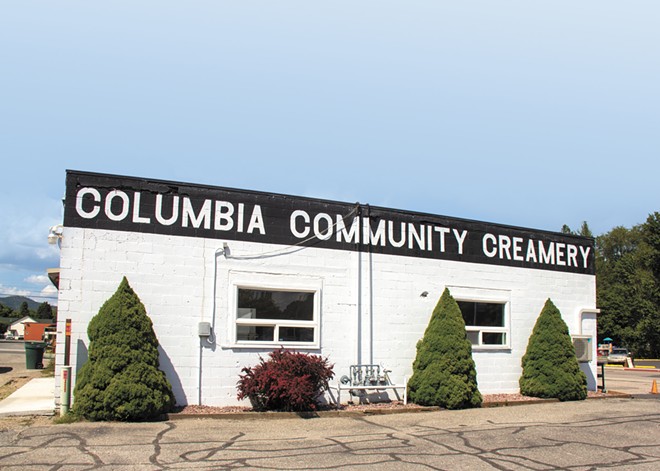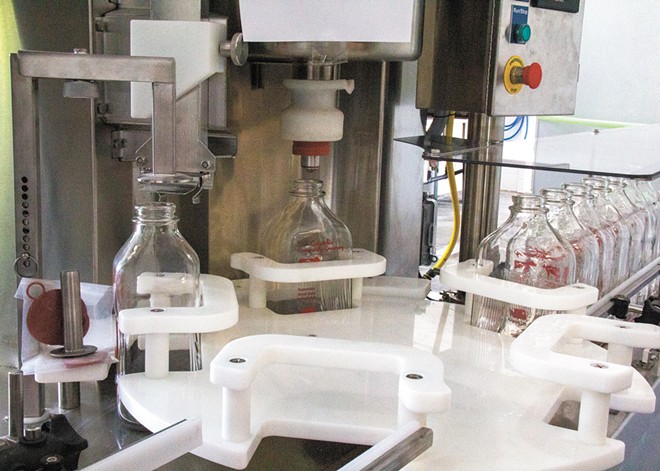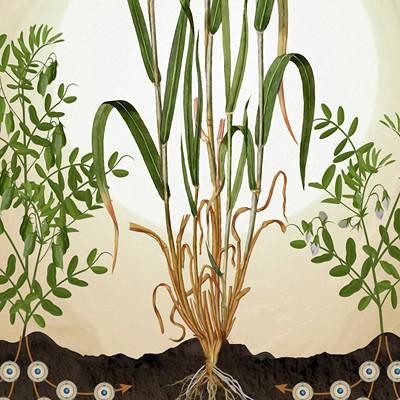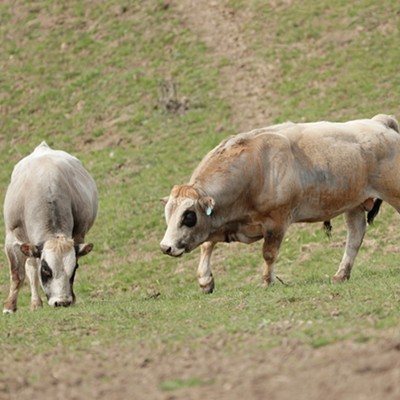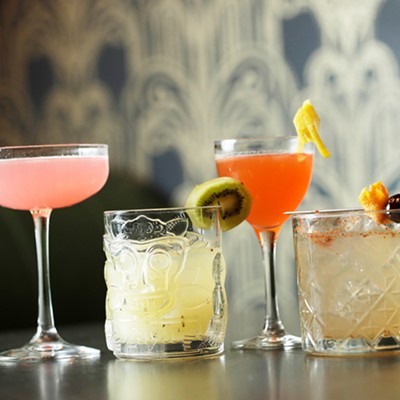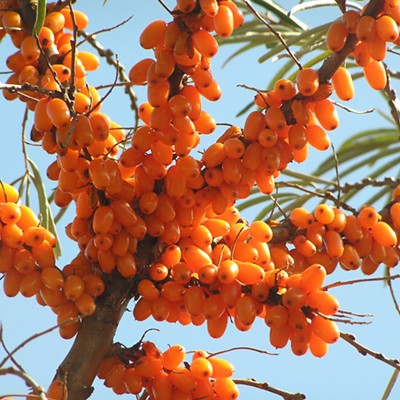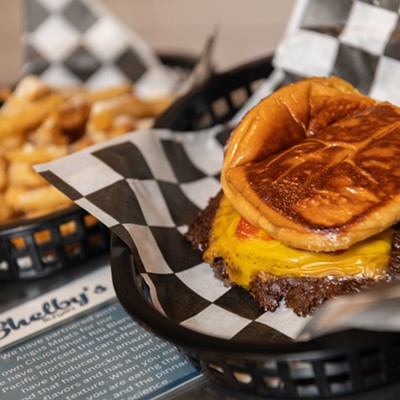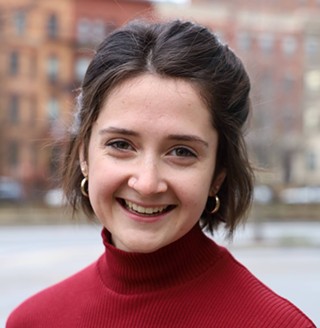In the mid-1960s, there were 360 dairy farms in Stevens County just north of Spokane. Today, there are nine.
Stacy Thomas owns one of them. He and his wife, Virginia, milk five Jersey cows at their dairy in Blue Creek, north of Chewelah. He knows the challenges of dairy farming — constantly milking, never taking a vacation from livestock, maintaining food safety regulations and acquiring extra licensing to make cheese and yogurt. But Thomas says the biggest challenge for dairy farmers in northeastern Washington was finding somewhere to sell their milk.
"All these little towns up and down used to have creameries that they could sell their milk to," Thomas says. "Now those markets have disappeared."
When the markets disappeared, the dairy farmers did, too.
The Thomases are also on the board of Columbia Community Creamery, a new nonprofit milk processor and dispensary that hopes to bring stability to dairy farming in Eastern Washington.
The creamery is a recipient of the Washington State Department of Agriculture's food system infrastructure grant, which aims to rebuild local food supply chains after COVID. The creamery buys milk from small, local farmers, processes it, and then markets the milk, plus other dairy products (yes, ice cream!), directly to consumers. The creamery is open Mondays, Wednesdays and Saturdays from 12-6 pm. It also operates a stand at the Chewelah Farmers Market on Fridays from 11 am to 3:30 pm.
Columbia Community Creamery is the first nonprofit creamery in the United States. There are no membership fees and no minimum shipping requirements. Whatever proceeds exceed its operational costs will be invested back into community efforts and education.
The creamery is about to boast another national first: a fresh milk dispenser. These coin-operated, bring-your-own-bottle machines are common in Europe, but this is the first time Inland Northwest locals will be able to walk right up, press a button, fill their own bottle with fresh, clean, minimally processed milk, and drive home.
Milking, grazing and caring for dairy cows is already a full-time job. Add processing, branding and marketing milk on top of that, and it's near impossible for a small dairy farmer to keep up, Thomas says.
But the white, square building off U.S. Route 395 with manicured shrubs, a pasteurizing room and a retail space can change that.
For the grand opening of Columbia Community Creamery last month, the board invited hundreds of visitors to tour its premises.
"This is where the dirty bottles would come in," Thomas says, motioning to a sink and an automatic bottle sanitizer at his right as he walks through the door to the processing room, "because we're using glass milk bottles, which are reusable indefinitely."
Past the sink is the main event, a 500-gallon vat pasteurizer, which heats the milk for half an hour at 145 degrees Fahrenheit. It's essentially a double boiler, Thomas says, with the raw milk in an interior vat and hot water circulating around it. It's the lowest legal pasteurizing temperature — hot enough to kill any unwanted pathogen, but not so hot that it ruins the taste.
Thomas says the milk processed at the new creamery tastes pretty much the same as milk straight out of a cow.
COLUMBIA COMMUNITY CREAMERY
519 N. Park St., Chewelah
Open Mon, Wed, Sat from noon-6 pm
Fri from 11 am-3:30 pm at the Chewelah Farmers Market
cccmilk.org
After being cooled through a spiral of coils, the milk gets a Choose Your Own Adventure moment — it can either go straight into a refrigerated storage tank or through the cream separator, which looks like a small pointed gnome compared to the giant heating vat. The little trinket enables the creamery to sell bottled cream, plus make its own ice cream from the fresh froth.
All of the milk eventually gets bottled by an automated machine that fills the reusable jars and slaps the cap on. Milk that still has its cream will naturally separate in the bottle, which the lucky buyer can shake back into the milk or spoon off and fluff up into whipped cream.
"Wonderful in coffee," a local resident assures others on the tour.
Once the fresh milk dispenser arrives from England, it will be hooked up straight to the refrigerated storage tank. The milk is clean, kept inside a closed loop at all times in the processing room, and buyers can save some nickels each time they bring their own bottles. The dispenser works just like a water bottle filling station, except that it dispenses milk, of course, in a preselected amount.
The milk is processed minimally enough that it can be used at home to make yogurt or cheese. The creamery plans on selling culture kits and maybe even hosting public classes on how to use this nutrient-dense food.
"Access to market — that's not just a farmer issue, that's a consumer issue, too," Thomas says. "Stevens County is such a cornucopia of farms, and there's so much wonderful farming, but the lack of processing capability really limits what the consumer can actually buy that was produced locally."
During COVID, there were times when Chewelah dairy farmers had milk at their farms but Safeway didn't have cartons on its shelves. Thanks to the new creamery, Chewelah residents can go straight to their neighbors for an extra cup of cream.
Aubrey Markel was asked to be on the board of Columbia Community Creamery when the idea was hatched two years ago. She's the agricultural science teacher at Chewelah's Jenkins Jr/Sr High School, plus the Future Farmers of America adviser for the region.
To Markel, joining the board meant helping revitalize an industry that could eventually provide jobs for some of her current students.
"Our tagline, 'More than just a bottle of milk,' is that we are paying farmers a livable wage," Markel says. "Paying a little bit more for your milk goes directly to the farmer."
According to the U.S. Department of Agriculture, the average price consumers pay for a gallon of whole milk has gone up from $2.78 in 2000 to $4.23 in 2023. For the past two decades, farmers have consistently earned roughly half the retail price. In June this year, farmers were paid about $1.81 per gallon.
As a nonprofit, Columbia Community Creamery will be able to pay its farmers about $3.60 per gallon, allowing farmers to reap much more of the sale price.
Lots of pictures in the retail room of the creamery show the history of dairy in Chewelah. The brightest ones show two teams of dairy farmers — Stacy and Virginia Thomas, and Leanna Wolf and Steve Lake, also of LakeWolf Creamery. These are the people providing about 300 gallons a week to the creamery, and who will receive most of the money each customer pays for their milk, cheese and ice cream.
"Just knowing your farmers is so important," Merkel says. "We're so far removed. I mean, I teach agriculture classes. I've had to say in class, like, 'Hey, chocolate milk does not come from brown cows.'"
The dairy farmers help pass out milk and cookies at the grand opening, with bright red T-shirts that read, "Hi, I'm your dairy farmer." Virginia Thomas has pictures of her brown Jersey cows on her phone. She shows one of Daisy, with a black face, wide ears, a stuffed mouth and floppy tongue, grazing in the middle of a meadow hemmed in by mountains.
"Dairy cows are magical creatures because they turn grass into ice cream," Thomas says.
Well, not quite. But that's how she gets kids excited about dairy farming. "It's enough," she says. "That's all they need to know." ♦

